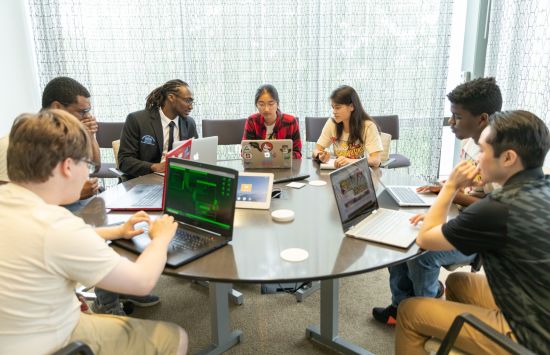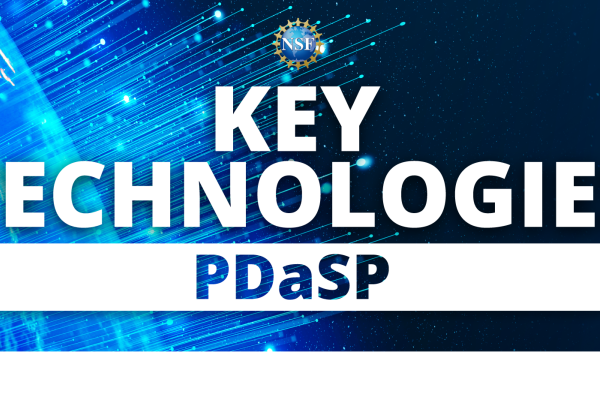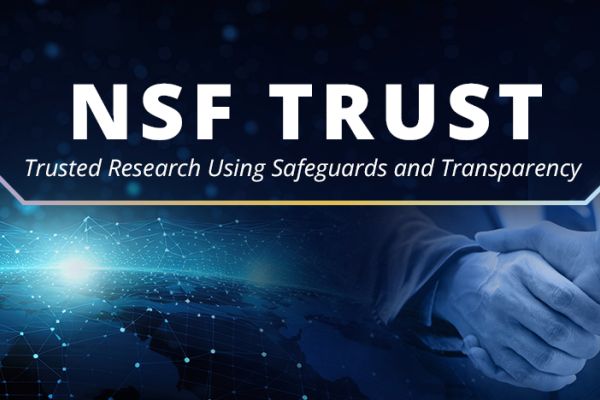For decades, the U.S. National Science Foundation has funded research to protect national and personal security in today's highly connected, digital world.
Cybersecurity is critical for safeguarding the nation's digital infrastructure, keeping supply chains moving, and ensuring the safety and privacy of personal data on the internet.
Achieving security in the cyber realm requires more than strengthening cyberinfrastructure — the hardware, software, networks, data and people that underpin today's computing technologies. It also requires continued vigilance as the threats posed by attackers and emerging technologies evolve.
Many new technologies, like generative artificial intelligence and wearable sensors that monitor health, present both risks and opportunities for cybersecurity. NSF invests in research focused on maximizing these technologies' potential while securing their safety and privacy.
 On this page
On this page
Brought to you by NSF
NSF's decades of sustained investments have ensured the continual advance of cyber research and security. Pioneering work supported by NSF includes:
Public-key cryptography
NSF-funded researchers led a paradigm shift in secret and secure communication with public-key cryptography, ensuring secure communications in financial and medical industries.
Cryptocurrency fraud
NSF-funded researchers helped to quantify the risks posed by cryptocurrencies, identifying multiple forms of price manipulation and informing regulators and the public about these risks and how to address them.
Detecting security vulnerabilities
NSF-funded researchers developed techniques, like SMT solvers, to detect software vulnerabilities and defend critical industry, research and government networks from cyberattacks.
Vehicle security
NSF-funded researchers revealed the vulnerability of cars and trucks to cyberattacks, inspiring automakers to release software updates to address these threats.
Privacy-preserving techniques
NSF funded the research on federated learning, differential privacy, secure multi-party computation and related techniques that allow datasets to be shared while protecting individual privacy.
Privacy and security labels
NSF-supported research led to the development of privacy and security labels that help consumers evaluate the security and data privacy practices of devices before they buy them.
What we support

Fundamental and translational research
We support research on the technical and social factors that impact the security and privacy of computerized systems, and how to translate that knowledge to the market and society.

Education and workforce development
We support educational programs that expand and nurture a diverse, skilled cybersecurity workforce pipeline, from K-12 and beyond, as well as education research and interventions to help everyday users improve their security and privacy.

Partnerships to accelerate progress
We partner with other federal agencies, industry and nonprofits to share data, tools, expertise and other resources; strengthen workforce development; and translate research into products and services that benefit society.
Featured funding
Computer and Information Science and Engineering: Core Programs
Supports research and education that advances cybersecurity and cyberinfrastructure.
America's Seed Fund (SBIR/STTR)
Supports startups and small businesses to translate research into products and services, including cybersecurity and authentication, to secure the national defense and protect the public.
CyberCorps® Scholarship for Service
Supports scholarships in cybersecurity that require a service obligation following graduation equivalent to the length of the scholarship.
Cyber-Physical Systems
Supports research on engineered systems with a seamless integration of cyber and physical components, such as computation, control, networking, learning, autonomy, security, privacy and verification, for a range of application domains.
Energy, Power, Control and Networks
Supports research in modeling, optimization, learning, adaptation and control of secure, networked multi-agent systems; higher-level decision making; and dynamic resource allocation and risk management.
Experiential Learning for Emerging and Novel Technologies
Supports inclusive experiential learning opportunities that provide cohorts of diverse learners with the skills needed to succeed in cyberinfrastructure, cybersecurity and other emerging technology fields.
Secure and Trustworthy Cyberspace
Supports research addressing cybersecurity and privacy, drawing on expertise in one or more of these areas: computing, communication and information sciences; education; mathematics; statistics; and social and behavioral sciences.
Strengthening the Cyberinfrastructure Professionals Ecosystem
Supports projects that deepen the integration of cyberinfrastructure professionals' services into research, while fostering education, training and recognition that address workforce development needs.




